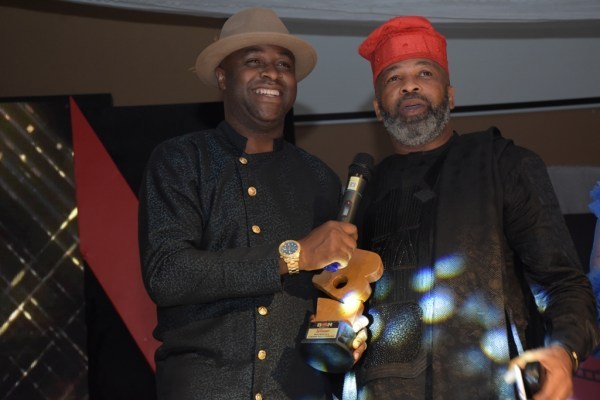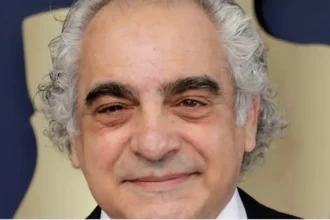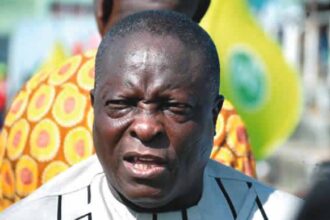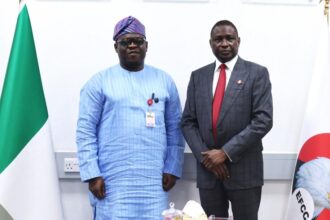...To get all news updates, Join our WhatsApp Group (Click Here)
Also Join our WhatsApp Channel (Click Here)
The Best of Nollywood Awards held on Saturday the 8th of December 2018, in the beautiful city of Ibadan, was painted and tainted with beautiful and hopeful colors, as well as dirty and fearful colors.
One cannot shy away from the fact that, it’s a fantastic initiative with a couple of bits and pieces to celebrate.
BON Awards, which is an annual film event presented by Best of Nollywood Magazine to honor outstanding achievement in the Nigeria Movie Industry, had its first edition on December 6, 2009, in Ikeja, Lagos State. Since then, It has consistently brought industry practitioners together to reward and award those who had paid their dues, actors, and actresses, crew members and movie makers who stood out and tall among others, in terms of contents and contributions to the growth of the industry. Therefore, have been able to maintain the momentum for 10 years should be a reason to be applauded. Femi Adebayo, Yemi Solade,(Best Actors in a Leading Role) Tope Oshin(best director and best movie of the year), Kelechi Udegbe(Best Actor in a Leading Role)
Another beautiful shot this event has taken is the meet and greet opportunity it gives to both the established and well-celebrated actors and the ‘introducing’ of new revelations actors. The two categories get to mingle and share moments of excitements. Especially for the upcoming, who are bathed in the waters of transition and showered with lights of exposure. For them, it’s a moment to passion re-ignition as some of them get nominated and celebrated on this platform with those they have grown up watching on the screen.
The 2018 edition exposed some brights with enviable talents like, Bukunmi Oluwasina who won two awards on the night, Omowunmi Dada, Blessing Egbe, Francis Sule, Tana Adelana, Judith Audu, Oreoluwa Adedoyin with the most promising actress award, Nosa Obaseki who went home with four awards from “Queen Of Queens” and “ Ebomisi” movies, Jumoke Adelaja, winning the Revelation of the Year Award, and the Beautiful and talented Jasmine Fakunle with the best child actress award, among others.
The event also unites and serves as a platform for actors to synergize irrespective of the languages implored in producing their movies. It clearly breaks the language and tribal barrier, indigenous movies like Mansoor, Mariya(Hausa); Obinwanne, Ofuobi(Igbo); Osun Sengede, Iru Kana, Tabili Ba Yi, Etiko Onigedu, Judasi, Irolabi(Yoruba) were some of the movies in the same mix.
BON Awards is also being used as an instrument to foster and appreciate the cultural value in various Nigerian states. The 2013 edition was held in Asaba, the previous in Abeokuta, and this year’s in Ibadan, Oyo, where the State’s cultural Troupe thrilled the diverse-in-tribe-audience with traditional dance and drama, rendering the national anthem with the talking drum.
The event displayed and showcased glamour’s no doubt, however, it was not without glitches that needed to be filed in other to really place it on the most prestigious award elevator and makes it look like it is actually serious about dreaming to appear like, the Academy Awards, The Golden Globes Awards, etc.
Some of the categories were obviously forcefully created, where others had been neglected. For example, even the audience were heard murmuring and giggling as the clip for the best special effect award was been shown on the projector.
All the movies nominated in that category were nothing but a joke when it comes to special effect. The effect looks like some things done with a phone editing App. Let’s just leave at that. It is believed that Nollywood has improved beyond childish blood, gun-shot, and ‘corel-draw-strokes-thunder effects. There are other categories too, that the nominees or nominations also made so boring and uninteresting. It is important to note that, it is not by force to have so many categories with very poor nominations; it damages the brand and stains the quality of the Awards.
The organizers also need to look in the direction of awarding the veterans, those who contributed their blood and sweat to the historic transition and development of the industry. Apart from very few of them that were seen at the event, there was no proper recognition of this set.
There is a strong need to also partner with both state and federal government in order to further enhance and widen the scope of the event and foster unity of not just the states and also of all the ingredients needed to take it to the best level. If it is The Best of Nollywood Awards, then let’s truly have the best!
You can get every of our news as soon as they drop on WhatsApp ...To get all news updates, Join our WhatsApp Group (Click Here)
Also Join our WhatsApp Channel (Click Here)












